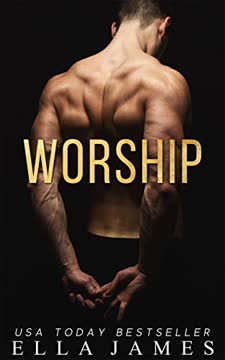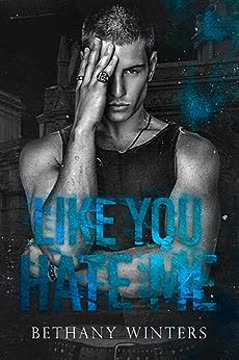Plot Summary
Stranded and Thirsty Night
Vance Rayne, a Brooklyn artist, wakes up sunburned and hungover on a deserted island in the Caymans, abandoned by his cruise group after a tequila-fueled tryst. Parched and desperate, he spots a yacht anchored offshore and, with no other options, swims out in the moonlight. Onboard, Luke McDowell, a famous but closeted megachurch pastor, is seeking solace and release from his own demons. Their worlds collide when Vance, seeking water, startles Luke, leading to a tense, physical confrontation. The night is thick with need, confusion, and the unspoken ache of two men who have spent their lives denying parts of themselves. The stage is set for a night that will change both forever.
Moonlit Rescue, Unspoken Tension
After the initial shock, Luke reluctantly pulls Vance aboard, tending to his wounds and thirst. The air between them is charged—Vance's brash humor and vulnerability clash with Luke's practiced reserve. As they share water, food, and awkward conversation, the boundaries between savior and saved blur. Luke's internal struggle is palpable: he's spent his life mastering self-control, but Vance's presence stirs something raw and forbidden. The night deepens, and with it, the tension. Each man is haunted by his own past—Vance by failed relationships and abandonment, Luke by the crushing expectations of faith and family. Their connection is undeniable, but both are afraid to name it.
Temptation and Surrender
Alone on the yacht, the men's mutual attraction becomes impossible to ignore. What begins as furtive glances and accidental touches erupts into a night of passion—intense, unrestrained, and cathartic. For Vance, sex is a language of freedom; for Luke, it's a terrifying surrender. Their encounter is both physical and emotional, a collision of need and longing. In the aftermath, vulnerability lingers. Luke, wracked with guilt and fear, tries to retreat behind his mask of control, but Vance's openness and humor chip away at his defenses. The night is a crucible, forging a bond neither expected but both desperately need.
Morning After, Hidden Names
As dawn breaks, reality intrudes. Vance, still in borrowed clothes, is left to wonder about the man who saved—and seduced—him. Luke, terrified of exposure, withholds his name and identity, reverting to practiced politeness. Their connection, so electric in the dark, becomes fraught with awkwardness and unspoken questions. Vance senses Luke's fear and shame but refuses to beg for more. They part ways with a handshake and a lie, each haunted by what might have been. Vance returns to his cruise, changed and restless; Luke sails away, the weight of his secret heavier than ever.
Ghosts of Faith and Family
Flashbacks reveal the roots of Luke's torment. As a boy, he was taught by his powerful father that love and faith are conditional, that desire must be suppressed for the sake of legacy and reputation. Early inklings of queerness are met with gentle but firm warnings: tradition and the church come first. These lessons become the bedrock of Luke's adult life, shaping his every choice and fear. The cost of belonging is self-denial, and the price of honesty is exile. Luke's struggle is not just with desire, but with the very foundation of his identity.
The Weight of Legacy
Now a global religious figure, Luke is trapped by the expectations of his family, church, and millions of followers. Every move is scrutinized; every relationship is a potential scandal. He is surrounded by loyal staff and admirers, but profoundly alone. The memory of Vance lingers, a reminder of what he's denied himself. Meanwhile, Vance, back in New York, throws himself into art and fleeting encounters, but nothing fills the void. Both men are haunted by the night they shared, each searching for meaning in their own way—one through faith, the other through creation.
Digital Longing, Secret Lives
Months pass, and the men's lives diverge but never truly separate. Vance, emboldened by memory and desire, begins posting provocative art and videos online, knowing Luke is watching. Luke, unable to resist, stalks Vance's social media, their digital flirtation a dangerous game. The screen becomes a confessional, a place where longing can be expressed without consequence—or so they hope. Their messages grow bolder, more explicit, until the distance between them is unbearable. The digital world offers connection, but also amplifies the ache of separation and the fear of discovery.
Crossing Lines, Crossing States
The tension finally breaks when Luke, in Washington D.C. for work, succumbs to temptation and drives through the night to meet Vance at his family's cabin in New Jersey. Their reunion is explosive—lust, anger, and tenderness mingling in a night that is both a continuation and a reckoning. For Luke, it is a terrifying leap into the unknown; for Vance, a chance to claim what he wants, if only for a night. They bare their bodies and souls, each touch a defiance of the world's expectations. But morning brings the old fears, and the cycle of retreat and longing resumes.
Reunion in the Pines
In the quiet of the woods, away from the world's gaze, Luke and Vance find a fragile peace. They talk, laugh, and make love with an intensity born of deprivation. For the first time, Luke allows himself to be vulnerable, to imagine a life not defined by duty and denial. Vance, too, is changed—his bravado tempered by genuine affection. But the specter of reality looms. Luke cannot stay; his life is elsewhere, and the risks are too great. They part with promises and regrets, each carrying the other's mark.
One Night, Many Truths
Their night together is more than sex—it is confession, absolution, and revelation. Luke admits he has never been with a man before; Vance shares his own history of abandonment and resilience. They talk about faith, art, family, and the meaning of love. The conversation is raw and searching, each man confronting the lies he's told himself. For Luke, the experience is both liberation and torment—a taste of freedom that makes his cage feel smaller. For Vance, it is hope and heartbreak entwined. The night ends, but its impact lingers.
The First Goodbye
After their night together, Luke returns to his world of sermons and scrutiny, Vance to his art and solitude. Both are changed, but neither knows how to bridge the gap between them. They keep in touch sporadically—calls, texts, silent phone lines in the night. Each is haunted by the memory of the other, by the possibility of a life together that seems impossible. The world moves on, but their hearts remain suspended, waiting for a sign, a miracle, or the courage to risk everything.
The Cost of Silence
Luke tries to move forward, dating a woman who seems perfect on paper, throwing himself into work and public service. But the mask grows heavier, and the cracks begin to show. He destroys the painting Vance made for him, a symbolic act of self-denial and grief. Vance, meanwhile, struggles with his own demons—failed relationships, creative blocks, and the persistent ache of loss. Both men are trapped by silence, unable to speak the truth that could set them free. The cost of secrecy is isolation, and the price of honesty is still too high.
The World Watches, Hearts Wait
As Luke's fame grows, so does the scrutiny. Every sermon, every appearance is a performance, a careful dance to avoid suspicion. Vance's art gains recognition, but he feels increasingly hollow. Their lives are lived in parallel—visible, successful, and profoundly lonely. The world sees only the surface: the charismatic pastor, the rising artist. Beneath, both are unraveling. Their longing for each other becomes a silent prayer, a hope that someday, somehow, they might be able to live openly and love without fear.
Art, Faith, and Forbidden Love
Fate intervenes when Vance is commissioned to paint a mural at Evermore, Luke's church in San Francisco. Neither knows the other is involved until it's too late. Their reunion is fraught—anger, desire, and old wounds collide. Luke, terrified of exposure, tries to keep things professional, but the chemistry between them is undeniable. Vance, hurt by Luke's coldness, refuses to be pushed away. The church, a symbol of both sanctuary and oppression, becomes the stage for their struggle—a place where art and faith, love and fear, must finally be reconciled.
Collision at Evermore
As Vance works on the mural, the tension between him and Luke simmers. Their interactions are charged with unspoken history and unresolved desire. The church's walls, meant to inspire faith, become a battleground for truth and denial. Luke is torn between his duty to his congregation and his longing for Vance. Vance, for his part, is determined not to be erased or shamed. Their conflict is both personal and symbolic—a microcosm of the larger struggle between authenticity and conformity, love and fear.
The Past Returns, Unforgiven
The past refuses to stay buried. Luke's childhood traumas, the expectations of his family, and the demands of his public life all converge, forcing him to confront the cost of his silence. Vance, too, must reckon with his own history—his father's abandonment, his mother's death, and his fear of being unwanted. Their relationship becomes a crucible, burning away pretense and forcing each to choose: safety or truth, loneliness or love. The stakes are higher than ever, and the risk of exposure is real.
Second Chances, Unfinished Business
In the aftermath of confrontation, both men are left raw and exposed. Luke must decide whether to continue living a lie or risk everything for love. Vance, weary of being someone's secret, demands honesty and commitment. Their final encounter is both a reckoning and a renewal—a chance to choose each other, or to walk away for good. The future is uncertain, but for the first time, both are willing to face it together, whatever the cost.
Love's Reckoning
The story ends not with easy answers, but with the hard-won hope that love—honest, messy, and real—can survive even the harshest trials. Luke and Vance stand at the threshold of a new life, their scars visible but their hearts open. The world may never understand, and the risks remain, but they have chosen each other. In the intersection of art and faith, desire and duty, they find a fragile peace. Their story is unfinished, but for now, they are together, and that is enough.
Characters
Vance Rayne
Vance is a Brooklyn-based sculptor and painter, fiercely independent and openly bisexual. His humor and bravado mask deep wounds—abandonment by his father, the early death of his mother, and a lifelong fear of being unwanted. Vance uses sex and art as both shield and salve, seeking meaning in fleeting encounters and creative expression. His relationship with Luke is transformative: he is both seducer and healer, challenging Luke's self-denial while yearning for genuine intimacy. Vance's journey is one of self-acceptance, learning to demand more than secrecy and shame. His resilience and vulnerability make him both a catalyst and a mirror for Luke's own struggles.
Luke McDowell
Luke is the golden boy of American Christianity—a charismatic, brilliant, and deeply closeted megachurch pastor. Raised in a dynasty of faith, he is haunted by the expectations of his family and congregation. Luke's life is a performance, every gesture calculated to maintain the illusion of perfection. His attraction to Vance is both a revelation and a threat, forcing him to confront the cost of his self-denial. Luke's psychological landscape is shaped by childhood trauma, religious dogma, and the crushing weight of legacy. His journey is one of painful awakening, as he learns that love and faith need not be enemies, and that true salvation lies in authenticity.
Pearl Myers
Pearl is Luke's young, energetic assistant, a source of comic relief and genuine support. She is perceptive, compassionate, and fiercely protective of Luke, often acting as a buffer between him and the world's demands. Pearl's presence highlights the loneliness at the heart of Luke's life—she is one of the few people who sees the man behind the mask. Her role in bringing Vance to Evermore is pivotal, and her loyalty is unwavering, even as she senses the secrets Luke is keeping.
Megan Mason
Megan is a successful, kind-hearted woman who becomes Luke's romantic interest as he tries to conform to societal expectations. Intelligent and empathetic, she represents the life Luke is supposed to want—a safe, respectable partnership. Megan's own vulnerabilities (her inability to have children, her longing for family) mirror Luke's, but their relationship is ultimately built on omission and compromise. She is both a comfort and a reminder of what Luke must sacrifice to be true to himself.
Arthur McDowell
Luke's father, a legendary pastor, looms large in his psyche. Arthur's teachings—loving but rigid—instill in Luke the belief that desire must be sacrificed for duty. His approval is both a prize and a prison, shaping Luke's every choice. Even after his death, Arthur's voice echoes in Luke's mind, a constant reminder of the cost of honesty.
Lana Ellison
Vance's former fiancée, Lana, is a socialite who represents the life Vance might have had—stable, conventional, and ultimately unfulfilling. Their breakup is a catalyst for Vance's journey, forcing him to confront his own desires and the impossibility of living a lie. Lana's presence lingers as a reminder of the choices Vance has made and the price of authenticity.
Bernard
Bernard is Luke's longtime driver and a subtle symbol of loyalty and discretion. He has served the McDowell family for years, witnessing their triumphs and tragedies. Bernard's quiet presence underscores the isolation of Luke's life—surrounded by people, yet profoundly alone.
Maya
Maya is a fellow artist and occasional lover of Vance's, embodying his tendency to seek comfort in physical connection while avoiding deeper vulnerability. Her presence in the story highlights Vance's restlessness and his struggle to find meaning beyond the surface.
Carolina
Carolina is a young artist mentored by Vance, representing the next generation and the possibility of change. Her presence in Vance's life is a reminder that art—and love—can be acts of hope, even in the face of disappointment.
Rufus White
Rufus is Evermore's lobbyist, a shrewd operator who navigates the intersection of faith, politics, and money. His role in Luke's world underscores the complexity and compromise required to maintain power, and the ways in which institutions can both protect and imprison.
Plot Devices
Dual Narrative Structure
The novel employs a dual narrative, alternating between Vance and Luke's points of view. This structure allows readers to inhabit both men's inner lives, exposing the gulf between public persona and private longing. The shifting perspectives create dramatic irony—readers know the truth even when the characters cannot speak it. This device heightens tension, deepens empathy, and underscores the central theme: the struggle to reconcile desire and duty.
Flashbacks and Nonlinear Time
The story is punctuated by flashbacks to formative moments in both men's lives—childhood lessons, family traumas, past relationships. These glimpses into the past illuminate the roots of their fears and desires, showing how history shapes the present. The nonlinear structure mirrors the characters' psychological journeys, as they are forced to confront the ghosts that haunt them.
Symbolism of Water and Art
Water recurs throughout the novel—as ocean, rain, tears—symbolizing both danger and liberation. The sea is a place of risk and possibility, a space where the rules of the world are suspended. Art, too, is a symbol of truth and self-expression, a way for Vance (and, vicariously, Luke) to articulate what cannot be spoken. The mural at Evermore becomes a battleground for authenticity, a visual testament to the possibility of reconciliation between faith and desire.
Digital Communication and Surveillance
The use of social media, texts, and digital art reflects the modern reality of connection and isolation. The screen is both a shield and a window, allowing the men to express longing while maintaining plausible deniability. At the same time, the ever-present threat of exposure—cameras, screenshots, public scrutiny—creates a sense of constant surveillance, amplifying the stakes of their relationship.
Foreshadowing and Irony
The narrative is laced with foreshadowing—glimpses of future heartbreak, warnings of the cost of secrecy. Irony abounds: the pastor who preaches love but cannot claim it for himself; the artist who creates beauty but cannot find peace. These devices deepen the emotional resonance, inviting readers to hope for redemption even as they fear its impossibility.
Analysis
"Worship" is a searing exploration of the intersection between faith, sexuality, and the longing for authenticity in a world that punishes difference. Through the entwined journeys of Vance and Luke, Ella James crafts a narrative that is both deeply personal and universally resonant. The novel interrogates the cost of silence—the ways in which institutions, families, and even lovers demand self-erasure in the name of belonging. At its heart, "Worship" is a love story, but it is also a meditation on the power of art, the tyranny of legacy, and the courage required to live one's truth. The book refuses easy answers, instead offering a nuanced portrait of two men who must choose between safety and honesty, isolation and connection. In a world where faith and queerness are too often seen as incompatible, "Worship" insists that love—messy, complicated, and real—is itself a form of worship, and that redemption is found not in perfection, but in the willingness to be seen.
Last updated:
Review Summary
Worship received mixed reviews, with an average rating of 3.93 out of 5. Many readers praised the intense chemistry between the main characters, Luke and Vance, and the forbidden romance aspect. The book was noted for its steamy scenes and emotional depth. Some critics felt there was too much sex and not enough plot development. Readers were divided on the pacing and character development. Despite mixed opinions, many expressed eagerness for the sequel. The cliffhanger ending left readers wanting more of Luke and Vance's story.
Similar Books
Download PDF
Download EPUB
.epub digital book format is ideal for reading ebooks on phones, tablets, and e-readers.










